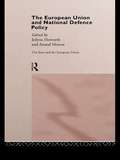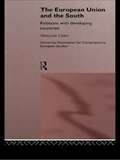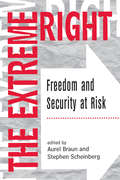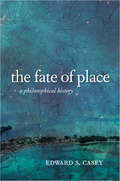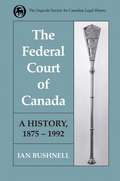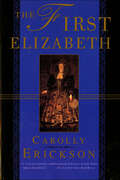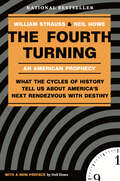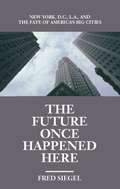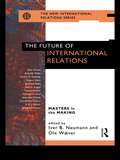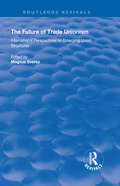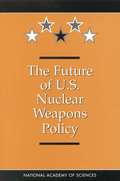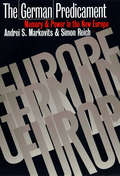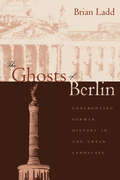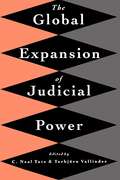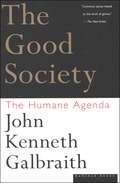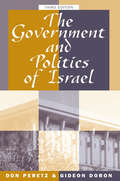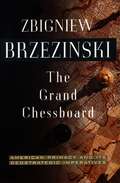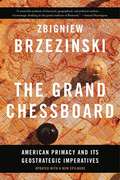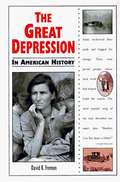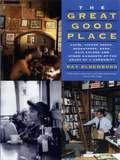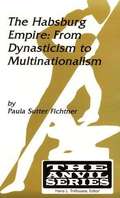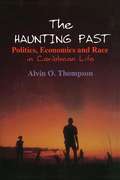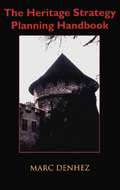- Table View
- List View
The European Union and National Defence Policy (The\state And The European Union Ser.)
by Anand Menon Jolyon HoworthFilling a surprising gap in existing studies, this book addresses many of the unanswered questions surrounding the role of european integration in shaping national defence policy. The impressive array of contributors consider the pressures on state policy emanating from the process of integration. The book is divided into three distinct parts: * an outline of the tortuous history of attempts to link defence with European integration * a study of the four larger member states - France, Germany, Italy and the UK as well as a chapter on The Netherlands;* an analysis of the effects of the nuclear weapons and arms procurement policies. This, the second book in The State and the European Union series, sheds light on an increasingly important and topical aspect of contemporary European security and will be essential reading for those studying European Politics, Public Policy and International Relations.
The European Union and the South: Relations with Developing Countries (Routledge/UACES Contemporary European Studies)
by Marjorie ListerAt the end of the current millenium the best description of Europe's relations with the developing countries of the South is: all change. Since 1957 the European Community has operated special policies for developing countries, many of which were formerly European colonies. However, neither the policies for Central and South America, the Lome Convention for the African, Caribbean and Pacific States, nor successive policies for the Mediterranean countries reflect a unified Europe. The European Union and the South begins by investigating the prospects for a common European foreign policy. It argues that Europe has developed a complex web of external relations, but no common foreign policy. In so far as the EU seeks a special world role to overcome its image as political dwarf, the role of champion or partner of the developing South has much to recommend it. This book presents an up-to-date, scholarly analysis of the foreign and development policy dilemmas facing Europe today. It will be essential reading for students of European external relations, development policy and international affairs.
The Extreme Right: Freedom And Security At Risk
by Aurel BraunFrom the Oklahoma City bombing to the Vladimir Zhirinovsky phenomenon in Russia, manifestations of extremism remain a feature of the post?Cold War era, presenting a danger to both established and emerging democracies. This timely volume examines the threats to freedom and security posed by right-wing extremism in established democracies and by the blend of left- and right-wing extremism in postcommunist states.Providing a strong theoretical framework, the contributors develop analytical tools for recognizing and assessing the dangers of extremism. Cognizant of context and the need for balance, they combine meticulous research and unique interviews with key individuals in case studies that identify the early warning signs of peril from Vancouver to Vladivostock. Written for upper-level and graduate students, scholars, and policymakers, this book can be used either as a primary text or as a source of supplementary comparative case studies.
The Fate of Place: A Philosophical History
by Edward S. CaseyIn this imaginative and comprehensive study, Edward Casey, one of the most incisive interpreters of the Continental philosophical tradition, offers a philosophical history of the evolving conceptualizations of place and space in Western thought. Not merely a presentation of the ideas of other philosophers, The Fate of Place is acutely sensitive to silences, absences, and missed opportunities in the complex history of philosophical approaches to space and place. A central theme is the increasing neglect of place in favor of space from the seventh century A.D. onward, amounting to the virtual exclusion of place by the end of the eighteenth century. Casey begins with mythological and religious creation stories and the theories of Plato and Aristotle and then explores the heritage of Neoplatonic, medieval, and Renaissance speculations about space. He presents an impressive history of the birth of modern spatial conceptions in the writings of Newton, Descartes, Leibniz, and Kant and delineates the evolution of twentieth-century phenomenological approaches in the work of Husserl, Merleau-Ponty, Bachelard, and Heidegger. In the book's final section, Casey explores the postmodern theories of Foucault, Derrida, Tschumi, Deleuze and Guattari, and Irigaray.
The Federal Court of Canada: A History, 1875-1992 (The Royal Society of Canada Special Publications)
by Ian BushnellThe Federal Court of Canada, which existed from 1875 to 1971 under the name Exchequer Court of Canada, occupies a special place in the court structure of Canada. It was founded principally to adjudicate legal disputes in which the Canadian government was involved; since its change of name in 1971 it has become primarily an administrative appeal court dealing with the review of decisions made by federal administrative tribunals in addition to its existing jurisdictions, admiralty, intellectual property, tax, and other areas. As a federal court within the nation, its very existence has provoked discussion and debate as the various provincial court systems claim a position of primacy within our society for the adjudication of legal disputes.Central to this history of the Court is an examination of the judges who have sat on its bench. Bushnell investigates who the judges have been and examines their work, with particular focus on the judges' views of the proper approach to decision-making. His study contains a wealth of information, much of which may not be widely known in the profession. As such, The Federal Court of Canada constitutes a rich source both for those with a legal background and for those with an interest in the working and history of legal institutions.
The First Elizabeth
by Carolly EricksonIn this remarkable biography, Carolly Erickson brings Elizabeth I to life and allows us to see her as a living, breathing, elegant, flirtatious, diplomatic, violent, arrogant, and outrageous woman who commands our attention, fascination, and awe.With the special skill for which she is acclaimed, Carolly Erickson electrifies the senses as she evokes with total fidelity the brilliant colors of Elizabethan clothing and jewelry, the texture of tapestries, and even the close, perfumed air of castle rooms. Erickson demonstrates her extraordinary ability to discern and bring to life psychological and physical reality.
The Formation of the Soviet Union: Communism and Nationalism, 1917–1923, Revised Edition (Russian Research Center studies ; #13)
by Richard PipesHere is the history of the disintegration of the Russian Empire, and the emergence, on its ruins, of a multinational Communist state. In this revealing account, Richard Pipes tells how the Communists exploited the new nationalism of the peoples of the Ukraine, Belorussia, the Caucasus, Central Asia, and the Volga-Ural area--first to seize power and then to expand into the borderlands.The Formation of the Soviet Union acquires special relevance in the post-Soviet era, when the ethnic groups described in the book once again reclaimed their independence, this time apparently for good.In a 1996 Preface to the Revised Edition, Pipes suggests how material recently released from the Russian archives might supplement his account.
The Fourth Turning: What the Cycles of History Tell Us About America's Next Rendezvous with Destiny
by William Strauss Neil HoweNATIONAL BESTSELLER • Discover the game-changing theory of the cycles of history and what past generations can teach us about living through times of upheaval—with deep insights into the roles that Boomers, Generation X, and Millennials have to play. First comes a High, a period of confident expansion. Next comes an Awakening, a time of spiritual exploration and rebellion. Then comes an Unraveling, in which individualism triumphs over crumbling institutions. Last comes a Crisis—the Fourth Turning—when society passes through a great and perilous gate in history.William Strauss and Neil Howe will change the way you see the world—and your place in it. With blazing originality, The Fourth Turning illuminates the past, explains the present, and reimagines the future. Most remarkably, it offers an utterly persuasive prophecy about how America&’s past will predict what comes next. Strauss and Howe base this vision on a provocative theory of American history. The authors look back five hundred years and uncover a distinct pattern: Modern history moves in cycles, each one lasting about the length of a long human life, each composed of four twenty-year eras—or &“turnings&”—that comprise history&’s seasonal rhythm of growth, maturation, entropy, and rebirth. Illustrating this cycle through a brilliant analysis of the post–World War II period, The Fourth Turning offers bold predictions about how all of us can prepare, individually and collectively, for this rendezvous with destiny.
The Future Once Happened Here
by Fred Siegel"In The Future Once Happened Here, Fred Siegel tells an incredible story about the fate of America's most influential cities: New York, Washington, D.C., and Los Angeles. Standing as metaphors for America's urban life because of their stature as nerve centers of the nation, these three cities-once celebrated for their excitement and creativity as well as their ability to incorporate immigrants and solve the nation's problems-were all caught up in the social policies born in the '60s and '70s and, as a consequence, faltered badly in dealing with the politics of race and the quality of their residents' lives in the '80s and '90s.Each of Siegel's three urban portraits shows the desperate remedies undertaken by cities searching for a lifeline back to the future whose promise they once seemed to embody. In a narrative that acknowledges the large historical forces that have remade the face of America over the last three decades, but insists that social policies are not merely foregone conclusions waiting to happen, Siegel holds up a mirror to our urban naure and tells us much about the way we live now."
The Future of International Relations: Masters in the Making? (New International Relations)
by Iver B. Neumann Ole WæverThis book presents the state of the art of international relations theory through an analysis of the work of twelve key contemporary thinkers; John Vincent, Kenneth Waltz, Robert O. Keohane, Robert Gilpin, Bertrand Badie, John Ruggie, Hayward Alker, Nicholas G. Onuf, Alexander Wendt, Jean Bethke Elshtain, R.B.J. Walker and James Der Derian. The authors aim to break with the usual procedure in the field which juxtaposes aspects of the work of contemporary theorists with others, presenting them as part of a desembodied school of thought or paradigm. A more individual focus can demonstrate instead, the well-rounded character of some of the leading oeuvres and can thus offer a more representative view of the discipline.This book is designed to cover the work of theorists whom students of international relations will read and sometimes stuggle with. The essays can be read either as introductions to the work of these theorists or as companions to it. Each chapter attempts to place the thinker in the landscape of the discipine, to identify how they go about studying International Relations, and to discuss what others can learn from them.
The Future of Trade Unionism: International Perspectives on Emerging Union Structures (Routledge Revivals)
by Magnus SverkeFirst published in 1997, this volume discusses the conditions for contemporary and future unionism in the light of recent economic, political and managerial changes. It presents theoretical and empirical research from Australia, Austria, Canada, Denmark, Italy, the Netherlands, New Zealand, Russia, South Africa, Sweden and the United States. Part 2 provides a rich international description of threats and challenges to contemporary and future unionism. Part 3 focuses on union strategical and structural change. Part 4 is concerned with the consequences of the changing union environment for member-union relations. Magnus Sverke and the contributors here present research addressing how the changing environmental conditions affect unions and their members and demonstrate the importance of applying an international and multi-disciplinary perspective on the analysis of these issues.
The Future of U.S. Nuclear Weapons Policy
by Committee on International Security Arms ControlThe debate about appropriate purposes and policies for U.S. nuclear weapons has been under way since the beginning of the nuclear age. With the end of the Cold War, the debate has entered a new phase, propelled by the post-Cold War transformations of the international political landscape. This volume--based on an exhaustive reexamination of issues addressed in The Future of the U.S.-Soviet Nuclear Relationship (NRC, 1991)--describes the state to which U.S. and Russian nuclear forces and policies have evolved since the Cold War ended. The book evaluates a regime of progressive constraints for future U.S. nuclear weapons policy that includes further reductions in nuclear forces, changes in nuclear operations to preserve deterrence but enhance operational safety, and measures to help prevent proliferation of nuclear weapons. In addition, it examines the conditions and means by which comprehensive nuclear disarmament could become feasible and desirable.
The German Predicament: Memory and Power in the New Europe
by Andrei S. Markovits Simon ReichWhat does the unification of Germany really mean? In their stimulating exploration of that question, Andrei S. Markovits and Simon Reich sketch diametrically different interpretations than are frequently offered by commentators. One is that Germany, well aware of the Holocaust, has been 'Europeanized' and is now prepared to serve as the capitalist and democratic locomotive that powers Europe. The other is that the proclivities behind Auschwitz have been suppressed rather than obliterated from the German psyche. Germany's liberal democracy was imposed by the allied victors, according to this view, and will one day dissolve, revealing the old expansionist tendencies to try to 'Germanize' all of Europe.Markovits and Reich argue that benign contemporary assessments of Germany's postwar democracy, combined with admiration for the country's economic achievements, contribute to German influence far greater than military might was able to achieve. Yet, at the same time, some Germans have internalized liberal and pacifist principles and now see their nation as powerless, simply a larger Switzerland. As a result, while the Germans have enormous influence and latitude, they have not taken responsibility for leadership. The prime reason for this gap beween ideology and structure, Markovits and Reich suggest, lies in the politics of collective memory.
The Ghosts of Berlin: Confronting German History in the Urban Landscape
by Brian LaddIn this compelling work, Brian Ladd examines the ongoing conflicts radiating from the remarkable fusion of architecture, history, and national identity in Berlin. Ladd surveys the urban landscape, excavating its ruins, contemplating its buildings and memorials, and carefully deconstructing the public debates and political controversies emerging from its past. "Written in a clear and elegant style, The Ghosts of Berlin is not just another colorless architectural history of the German capital. . . . Mr. Ladd's book is a superb guide to this process of urban self-definition, both past and present. "--Katharina Thote, Wall Street Journal "If a book can have the power to change a public debate, then The Ghosts of Berlin is such a book. Among the many new books about Berlin that I have read, Brian Ladd's is certainly the most impressive. . . . Ladd's approach also owes its success to the fact that he is a good storyteller. His history of Berlin's architectural successes and failures reads entertainingly like a detective novel. "--Peter Schneider, New Republic "[Ladd's] well-written and well-illustrated book amounts to a brief history of the city as well as a guide to its landscape. "--Anthony Grafton, New York Review of Books
The Global Expansion of Judicial Power
by Torbjorn Vallinder C Neal TateEssays examining the trend of expanding judicial powers in government around the world. In Russia, as the confrontation over the constitutional distribution of authority raged, Boris Yeltsin&’s economic program regularly wended its way in and out of the Constitutional Court until Yeltsin finally suspended that court in the aftermath of his clash with the hardline parliament. In Europe, French and German legislators and executives now routinely alter desired policies in response to or in anticipation of the pronouncements of constitutional courts. In Latin America and Africa, courts are—or will be—important participants in ongoing efforts to establish constitutional rules and policies protect new or fragile democracies from the threats of military intervention, ethnic conflict, and revolution. This global expansion of judicial power, or judicialization of politics is accompanied by an increasing domination of negotiating or decision-making arenas by quasi-judicial procedures. For better or for worse, the judicialization of politics has become one of the most significant trends of the end of the millennium. In this book, political scientists, legal scholars, and judges around the world trace the intellectual origins of this trend, describe its occurrence—or lack of occurrence—in specific nations, analyze the circumstances and conditions that promote or retard judicialization, and evaluate the phenomenon from a variety of intellectual and ideological perspectives.
The Good Society: The Human Agenda (Las Letras De Drakontos Ser.)
by John Kenneth GalbraithThe legendary economist explains how a nation can remain both compassionate and fiscally sound, with &“common sense raised to the level of genius&” (The New Yorker). This compact, eloquent book offers a blueprint for a workable national agenda that allows for human weakness without compromising a humane culture. Arguing that it is in the best interest of the United States to avoid excessive wealth and income inequality, and to safeguard the well-being of its citizens, he explores how the goal of a good society can be achieved in an economically feasible way. Touching on topics from regulation, inflation, and deficits to education, the environment, bureaucracy, and the military, Galbraith avoids purely partisan or rigid ideological politics—instead addressing practical problems with logic and well-thought-out principles. &“Carefully reasoned . . . the pragmatically liberal Galbraith [argues] that both socialism and complete surrender to market forces are irrelevant as guides to public action.&” —Publishers Weekly
The Government And Politics Of Israel: Third Edition
by Donald PeretzIsraeli government and politics have undergone significant changes since the second edition of this book was published in 1983. Israel withdrew from Lebanon, absorbed hundreds of thousands of new immigrants from the collapsed Soviet Union and Ethiopia, and undertook peace negotiations with the Palestinians and other Arab neighbors that led to a historic peace treaty, the Declaration of Principles. These events were made possible as a result of several institutional, legal, and normative changes in the political system.This completely revised edition of The Government and Politics of Israel offers a comprehensive and up-to-date overview of the dynamics of Israeli politics. This edition focuses on issues that have become central in the study of Israels political system, such as new electoral procedures, the formation of new parties, government administrative reorganization, fresh personalities on the national scene, and the peace process. The book is intended to familiarize those interested in Israels government with its origins; the evolution of its institutions, practices, and traditions; and the workings of the government today. }Israeli government and politics have undergone significant changes since the second edition of this book was published in 1983. Israel withdrew from Lebanon, absorbed hundreds of thousands of new immigrants from the collapsed Soviet Union and Ethiopia, and undertook peace negotiations with the Palestinians and other Arab neighbors that led to a historic peace treaty, the Declaration of Principles. These events were made possible as a result of several institutional, legal, and normative changes in the political system.This completely revised edition of The Government and Politics of Israel offers a comprehensive and up-to-date overview of the dynamics of Israeli politics. This edition focuses on issues that have become central in the study of Israels political system, such as new electoral procedures, the formation of new parties, government administrative reorganization, fresh personalities on the national scene, and the peace process. The book is intended to familiarize those interested in Israels government with its origins; the evolution of its institutions, practices, and traditions; and the workings of the government today. }
The Grand Chessboard
by Zbigniew BrzezinskiAs the twentieth century draws to a close, the United States has emerged as the world’s only superpower: no other nation possesses comparable military and economic power or has interests that bestride the globe. Yet the critical question facing America remains unanswered: What should be the nation’s global strategy for maintaining its exceptional position in the world? Zbigniew Brzezinski tackles this question head-on in this incisive and pathbreaking book. The Grand Chessboard presents Brzezinski’s bold and provocative geostrategic vision for American preeminence in the twenty-first century. Central to his analysis is the exercise of power on the Eurasian landmass, which is home to the greatest part of the globe’s population, natural resources, and economic activity. Stretching from Portugal to the Bering Strait, from Lapland to Malaysia, Eurasia is the ”grand chessboard” on which America’s supremacy will be ratified and challenged in the years to come. The task facing the United States, he argues, is to manage the conflicts and relationships in Europe, Asia, and the Middle East so that no rival superpower arises to threaten our interests or our well-being. The heart of The Grand Chessboard is Brzezinski’s analysis of the four critical regions of Eurasia and of the stakes for America in each arena--Europe, Russia, Central Asia, and East Asia. The crucial fault lines may seem familiar, but the implosion of the Soviet Union has created new rivalries and new relationships, and Brzezinski maps out the strategic ramifications of the new geopolitical realities. He explains, for example: Why France and Germany will play pivotal geostrategic roles, whereas Britain and Japan will not. Why NATO expansion offers Russia the chance to undo the mistakes of the past, and why Russia cannot afford to toss this opportunity aside. Why the fate of Ukraine and Azerbaijan are so important to America. Why viewing China as a menace is likely to become a self-fulfilling prophecy. Why America is not only the first truly global superpower but also the last--and what the implications are for America’s legacy. Brzezinski’s surprising and original conclusions often turn conventional wisdom on its head as he lays the groundwork for a new and compelling vision of America’s vital interests. Once, again, Zbigniew Brzezinski provides our nation with a philosophical and practical guide for maintaining and managing our hard-won global power.
The Grand Chessboard: American Hegemony and its Geo-Strategic Imperatives
by Zbigniew BrzezinskiAs the twentieth century draws to a close, the United States has emerged as the world's only superpower: no other nation possesses comparable military and economic power or has interests that bestride the globe. Yet the critical question facing America remains unanswered: What should be the nation's global strategy for maintaining its exceptional position in the world? Zbigniew Brzezinski tackles this question head-on in this incisive and pathbreaking book.The Grand Chessboard presents Brzezinski's bold and provocative geostrategic vision for American preeminence in the twenty-first century. Central to his analysis is the exercise of power on the Eurasian landmass, which is home to the greatest part of the globe's population, natural resources, and economic activity. Stretching from Portugal to the Bering Strait, from Lapland to Malaysia, Eurasia is the "grand chessboard" on which America's supremacy will be ratified and challenged in the years to come. The task facing the United States, he argues, is to manage the conflicts and relationships in Europe, Asia, and the Middle East so that no rival superpower arises to threaten our interests or our well-being.The heart of The Grand Chessboard is Brzezinski's analysis of the four critical regions of Eurasia and of the stakes for America in each arena-Europe, Russia, Central Asia, and East Asia. The crucial fault lines may seem familiar, but the implosion of the Soviet Union has created new rivalries and new relationships, and Brzezinski maps out the strategic ramifications of the new geopolitical realities. He explains, for example: Why France and Germany will play pivotal geostrategic roles, whereas Britain and Japan will not. Why NATO expansion offers Russia the chance to undo the mistakes of the past, and why Russia cannot afford to toss this opportunity aside. Why the fate of Ukraine and Azerbaijan are so important to America. Why viewing China as a menace is likely to become a self-fulfilling prophecy. Why America is not only the first truly global superpower but also the last-and what the implications are for America's legacy. Brzezinski's surprising and original conclusions often turn conventional wisdom on its head as he lays the groundwork for a new and compelling vision of America's vital interests. Once, again, Zbigniew Brzezinski provides our nation with a philosophical and practical guide for maintaining and managing our hard-won global power.
The Grand Chessboard: American Primacy and Its Geostrategic Imperatives
by Zbigniew BrzezinskiIn The Grand Chessboard, renowned geostrategist Zbigniew Brzezinski delivers a brutally honest and provocative vision for American preeminence in the twenty-first century. The task facing the United States, he argues, is to become the sole political arbiter in Eurasian lands and to prevent the emergence of any rival power threatening our material and diplomatic interests. The Eurasian landmass, home to the greatest part of the globe's population, natural resources, and economic activity, is the "grand chessboard” on which America's supremacy will be ratified and challenged in the years to come. In this landmark work of public policy and political science, Brzezinski outlines a groundbreaking and powerful blueprint for America's vital interests in the modern world. In a revised edition with a new epilogue, Brzezinski brings his seminal work up to date with commentary on the latest global developments, including the war in Ukraine, the re-emergence of Russia, and the rise of China.
The Great Depression in American History
by David K. FremonThis is a description of the history surrounding the Great Depression, highlighting the causes and key figures.
The Great Good Place: Cafes, Coffee Shops, Bookstores, Bars, Hair Salons, and Other Hangouts at the Heart of a Community
by Ray OldenburgThe Great Good Place argues that third places - where people can gather, put aside the concerns of work and home, and hang out simply for the pleasures of good company and lively conversation - are the heart of a community's social vitality and the grassroots of democracy.
The Habsburg Empire: From Dynasticism to Multinationalism
by Paula S. FichtnerDr. Fichtner presents a concise summary of the development and problems of the Habsburg Empire as a multi-ethnic state from the sixteenth century to the end of World War I. Twenty-six documents, some from local journals and periodicals of the era, illustrate the political, cultural, and economic relations of the Habsburg peoples, both with their rulers and with one another.
The Haunting Past: Politics, Economics and Race in Caribbean Life (Perspectives On Latin America And The Caribbean Ser.)
by Alvin O. ThompsonFirst Published in 2015. Routledge is an imprint of Taylor & Francis, an informa company.
The Heritage Strategy Planning Handbook
by Marc DenhezStrategies for the conservation and revitalization of buildings and districts have preoccupied the international community for decades. This book summarizes the five major legislative approaches, the treaties and international declarations (including The Habitat Agenda 1996), outlining how to deal with these properties, e.g. in light of "sustainable development." Positive and negative examples from some twenty jurisdictions are cited, but they are seldom "place specific." Indeed, most of the problems and their solutions could occur in almost any country on earth. "Most European literature on monument conservation deals exclusively with the powers of public authorities. Marc Denhez’s book gives equal space to existing political and legal frameworks, but always with an eye on the potential end-user, the citizen. This conspicuously practical approach is the book’s first advantage; the second, for a European reader, is that it opens new horizons beyond the old Euro-centric view of the subject." - Peter Rupp, Minister of Culture (France) Advisor to the Council of Europe
